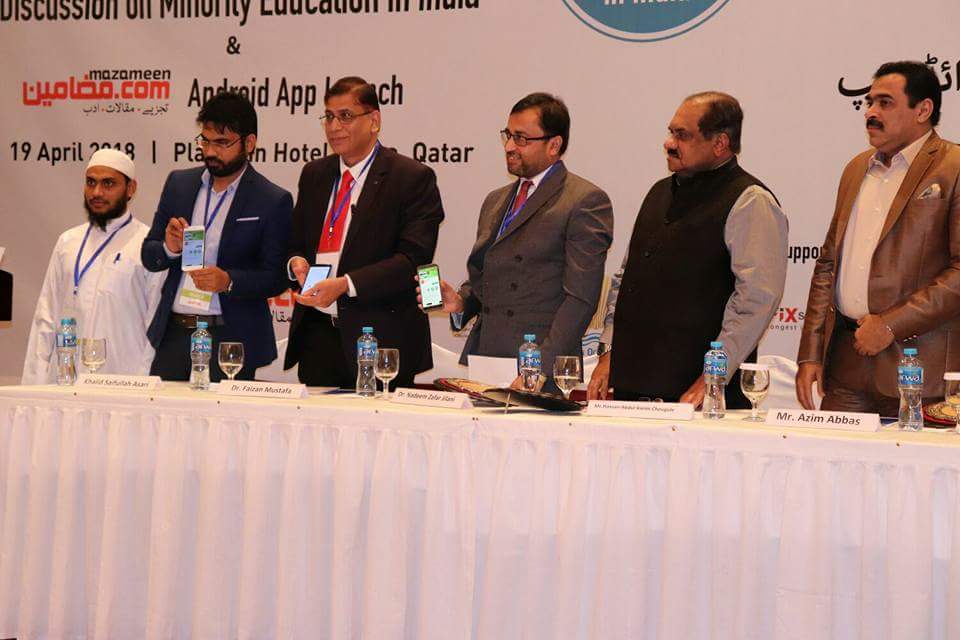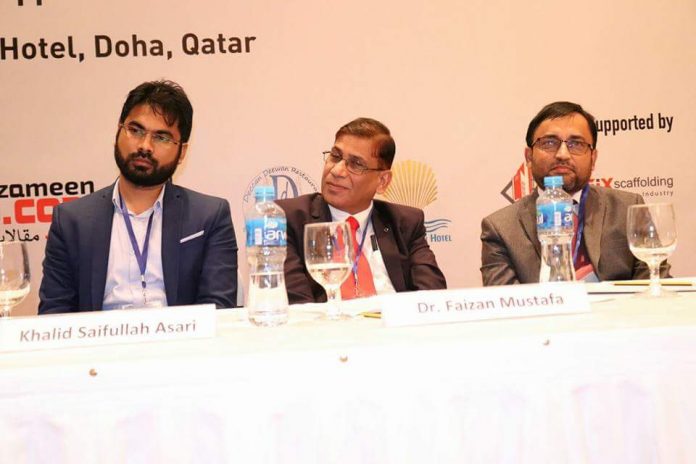By Nadeem Jilani
On Thursday, April 19, over 150 delegates met at the Plaza Inn Hotel, Doha to discuss and address the problems pertaining to the education of minority community in India.
“It was an evening with lots of practical ideas to work for the educational upliftment of the community,” said the press statement released after the event organised and conducted by Khalid Saifullah of mazameen.com.
Faizan Mustafa, the scholar, and vice-chancellor at NALSAR University of Law, Hyderabad, spoke on the subject of future of minority education giving legal perspective over the same. He also discussed current court cases regarding minority character of both Aligarh Muslim University and Jamia Millia Islamia and “seemed optimistic for a favourable outcome”.
Zaigham Murtaza, a Delhi-based journalist with Rajya Sabha TV, discussed social and financial challenges of minority education.
Other Doha dignitaries like Hasan Abdul Karim Choghle and Zamir Abbas also shared the dais on the event. An Android app of mazameen.com was also launched on this occasion.
Panellists argued that arbitrary differentiation between Ilm-e-Deen and Ilm-e-Dunya has caused immense damage. Muslims shouldn’t shy away from gaining any beneficial knowledge.

“Although there are many private institutions in South India, they are costly and hence out of reach of poor or lower-middle-class students. Therefore state-funded minority institutions like AMU and JMI are very important. Muslims should open more institutions of higher education as well as primary schools utilizing existing constitutional provisions and Right to Education with fundings from the government,” said the press statement adding that activists should make organized efforts to make the students aware of various loans and scholarship schemes.
According to the program brief, the audience was exhorted to help at least one child in their locality complete high school and encourage them for further education, giving examples like how girls in villages could be taught computers, and who in turn would teach another ten girls in six months. Emphasis should be on rural areas of West Bengal, Bihar, and Uttar Pradesh, they added.
Encouraging students to study law and sit in Judicial recruitment exams besides Civil Service, Medical & Engineering was also discussed as the need of the hour when it comes to minorities’ education in the country.
The panellists also stressed on the need to establish think-tanks in Universities like AMU, JMI and overseas places like Doha to counter anti-muslim prejudice, which is being spread by media. “To move from Facebook Activism to writing for newspapers and online news portals on issues of concern” was also put as a necessity, added the press statement.

